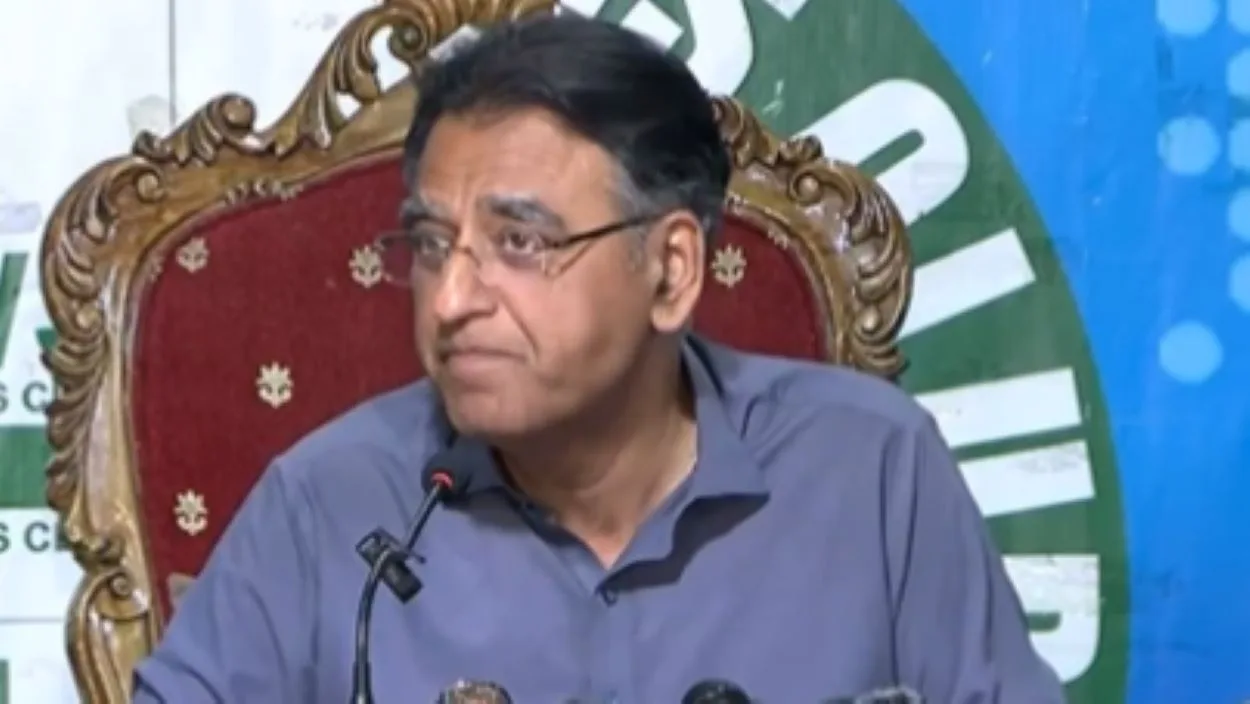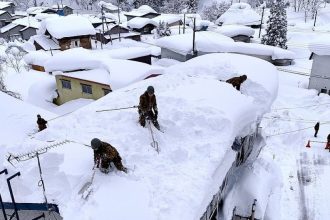In a major blow to former Prime Minister Imran Khan, Asad Umar, Secretary General of Pakistan Tehreek-e-Insaf (PTI), has decided to resign from all his party roles soon after his release from Adiala Jail. Umar disclosed this development during a Wednesday press briefing held at the National Press Club in Islamabad.
He expressed his inability to guide the party amidst the current challenges, prompting him to step down as the Secretary-General and a key member of the PTI core committee. Umar, however, assured that his resignation was not a complete departure from the PTI, only a withdrawal from his role as secretary general.
Umar noted the May 9 attacks on military installations as particularly concerning. He endorsed Imran Khan’s views on the vital role of a strong military force in the nation, crediting the army for preventing a scenario akin to Syria’s. Umar called for an immediate and thorough inquiry into the May 9 events, expressing his concern about the detention of numerous PTI supporters, many of whom, he claimed, were innocent.
While reiterating his commitment to PTI, he stressed that his resignation decision was self-imposed and not driven by outside factors.
Umar, a former finance minister, saluted the vast army of Pakistan, from well-known generals to thousands of soldiers making sacrifices for the nation. He shared his family’s long-standing connection with the army, with family members serving across several generations and wars.
In his opinion, the nation’s support was key to a powerful army, but the events of May 9 were alarming.
He maintained that while those guilty of wrongdoing should face justice, the innocent should be released. The PTI leader recognized that many party workers were detained but insisted that many were blameless and urged for accountability of those involved in the violence.
Umar addressed five key entities in his speech: the Pakistan Army, the judiciary, PTI, PDM, and the Pakistani populace.
He hypothesized that PDM would likely secure the government in Sindh and Balochistan in a primary election and form a robust opposition at the Centre. However, he also observed that the governing alliance’s political landscape had been negatively impacted over the past 13 months.
According to Umar, the current circumstances pose the gravest threat to Pakistan since Bangladesh’s secession in 1971, necessitating collective efforts to resolve this crisis.
Umar didn’t solely hold Imran Khan responsible for the May 9 happenings, remarking, “I don’t think all this destruction has come solely because of one man.”






